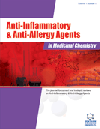
Full text loading...
The low solubility and permeability of tetrahydrocurcumin act as a barrier in its therapeutic effectiveness, particularly in the topical treatment of skin diseases like psoriasis.
Niosomes were prepared using thin-film hydration method using span 60, cholesterol as independent variables in Box Behnken design. Particle size, entrapment efficiency and drug loading were taken as dependent variables. In Box Behnken design the levels are -1, 0, and +1. The values for span 60 are 50, 75, and 100mg and for cholesterol 10, 20, and 30mg.
The optimized formulation has a particle size of 116.9 nm, entrapment efficiency of 94.7% and, drug loading of 85.23%. The niosomes showed first-order release kinetics property and maintained stability at 4°C and 25°C for three months. The desirability score obtained was 0.896.
The optimized niosomal formulation enhanced THC’s solubility, permeability, and stability, supporting its potential for effective topical psoriasis treatment. Future studies will focus on in situ gel incorporation and in vivo validation.
The developed formulation significantly improves the solubility and permeability of tetrahydrocurcumin which leads to improved therapeutic effectiveness in the formulation for the treatment of psoriasis. Further studies will incorporate these niosomes in in situ gels for the application.

Article metrics loading...

Full text loading...
References


Data & Media loading...

